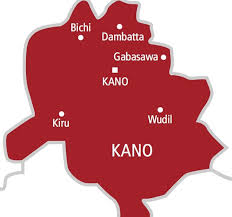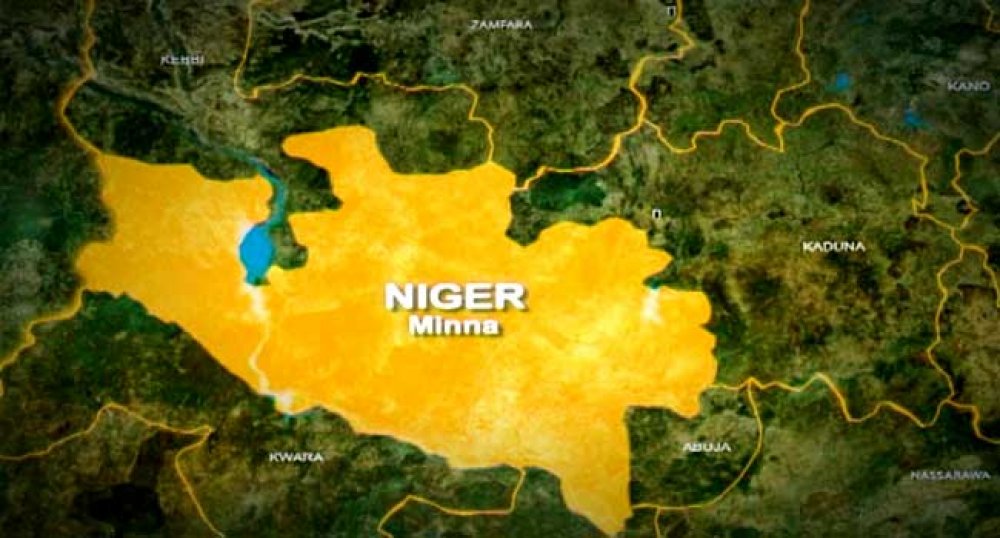NEWS
Oba Of Benin In Legal Turmoil Over Enigie Suspension

The Oba of Benin, Oba Ewuare II, finds himself entangled in a legal dispute at the Benin City High Court, under the jurisdiction of Justice P. A. Akhihiero.
The monarch is being sued in case No. B/290OS/2023 by Prof. Gregory Akenzua and Edomwonyi Iduozee Ogiegbaen, Enigie (Dukes) of Evbo-Obanosa and Egbaen, challenging the legitimacy of their suspension from their community roles.
The lawsuit, filed by their Counsel, Dr. Osagie Obayuwana, questions the Oba’s authority in taking such actions under the law.
They argue that their appointment as traditional chiefs holds official validation from the Edo State Government.
Backed by registration certificates submitted as exhibits in the lawsuit, the claimants contend that their registration aligns with Section 25(2) of the Traditional Rulers and Chiefs Law, mirroring the recognition granted to other traditional rulers within the state.
In an affidavit supporting the originating summons, Akenzua claimed that the residents of the two Dukedoms were deceived into undertaking solidarity visits to the Palace of the paramount ruler in Benin. Allegedly, during these visits, they were suspended in their absence.
Citing section 28 of the State Traditional Rulers and Chiefs Law, the claimants argue that only the State Executive Council possesses the authority to sanction them as Enigie if they are found at fault.
They contend that any deviation from this provision would constitute a usurpation of the powers vested in the State Executive Council.
The claimants refute any wrongdoing, asserting their right to freedom of speech.
They explain that they exercised this right by writing a letter to the Governor of Edo State in 2022, joined by 94 fellow Enigie.
In the letter, they urged the governor to utilize the powers vested in him by law, expressing their belief that this action would accelerate development in rural Edo State, particularly in the Edo South senatorial district.
According to the originating summons, “The two issues posed for determination by the court by the claimants are: Whether the Omo N’Oba can exercise the power to suspend a registered traditional chief, when the law vests that authority on the State Executive Committee.
“Whether the Oba of Benin has the authority to suspend them in violation of their right to fair hearing guaranteed by Section 36 of the Constitution of the Federal Republic of Nigeria.”
The trial judge, Justice P. A. Akhihiero, has set March 8, 2024, as the next date for mention in the case.
NEWS
Kano Businessman’s Daughter Kidnapped After ₦8m Ransom Payment

In a shocking incident on Sunday morning, unknown gunmen suspected to be kidnappers invaded the home of Alhaji Auwal, a prominent businessman, in Garo Town, Kabo Local Government Area of Kano State.
The gunmen, estimated to be around 10 in number, forced their way into the residence, breaking down a door to gain entry.
An anonymous source revealed that the attackers were heavily armed, with three carrying firearms and the rest wielding other weapons.
READ MORE: Tinubu Urges Stakeholders To Join Forces To Restart Oil Production In Ogoniland
They quickly gathered the entire family in one room, instilling fear and panic in the household.
According to the source, Alhaji Auwal pleaded with the assailants to spare his family and agreed to meet their demands.
The kidnappers, who were determined to extort money, received ₦8 million from the family.
Despite this payment, the gunmen took the businessman’s eldest daughter, Zainab, a secondary school graduate, before fleeing the scene.
The whereabouts of Zainab remain unknown, and as of now, the kidnappers have not contacted the family.
This abduction comes just 48 hours after the tragic kidnapping and subsequent murder of former Gombe State Permanent Secretary, Atiku Mu’azu, who was killed by gunmen after a ₦10 million ransom was paid.
The two incidents have left the residents of Kano in shock and fear, prompting calls for increased security measures in the area.
Attempts to reach the spokesperson for the Kano Police Command, SP Abdullahi Haruna, for comment were unsuccessful as his phone remained unreachable.
Authorities have yet to make any official statements regarding the investigation.
International News
Colombia Blocks US Deportation Flights Over Migrant Treatment

In a bold move, Colombian President Gustavo Petro declared on Sunday that he would not allow US deportation flights carrying Colombian migrants to access his country’s airspace.
The left-wing leader took to X (formerly Twitter) to express his strong stance, stating, “The United States cannot treat Colombian migrants as criminals. I forbid entry to our territory to US planes carrying Colombian migrants.”
Petro made it clear that such flights would only be accepted once Washington established a protocol to ensure the “dignified treatment” of deported migrants.
READ MORE: How Trump Plans To Grow American Economy By $1 Trillion Daily
The president later confirmed in a separate post that he had already turned back US military planes that were en route with Colombian migrants on board, although he did not provide further specifics on the matter.
While AFP sought confirmation from US authorities regarding the blockade of deportation flights, no immediate response was forthcoming.
Petro’s statements come just a day after Brazil’s government voiced similar outrage over the treatment of deported Brazilians.
Brazil condemned the US administration under President Donald Trump, citing instances where Brazilian migrants were deported while handcuffed on flights, describing it as a “flagrant disregard” for their basic rights.
In his remarks, Petro emphasized that he would be open to allowing civilian US flights to transport deported migrants as long as they were not subjected to treatment “like criminals,” signaling a broader call for humane treatment of migrants under international deportation policies.
NEWS
Four Dead, Many Injured As Explosion Rocks Niger State Mining Site

An explosion at a mining site in Sabon Pegi, Mashegun Local Government Area of Niger State, claimed the lives of four individuals and left several others injured on Sunday morning.
The blast occurred as miners resumed operations, sending shockwaves through the community.
While the exact cause of the explosion remains undetermined, local residents have pointed to the poor handling of explosive devices by mining companies as a possible factor.
READ MORE: Thisday Awards: Diana Ross Arrives In Nigeria
The incident has sparked concerns about safety practices within the mining sector.
Community sources confirmed the recovery of four bodies, but authorities fear the death toll could rise.
Investigations are ongoing to establish the cause of the blast and assess the full extent of the damage.
One resident, Aminu, described the chaos that followed the explosion. “The sound was so loud that many of us thought it came from the hydroelectricity dam nearby. People panicked and ran into the bush for safety,” he recounted.
Another community member highlighted the potential role of mining operations in the tragedy.
“Mining companies here frequently use explosives during their activities, and this seems like an operational issue, not something related to terrorism,” the resident said, dismissing concerns about a security threat in the area.
As of the time of reporting, neither the state government nor security agencies have released an official statement regarding the explosion.
















